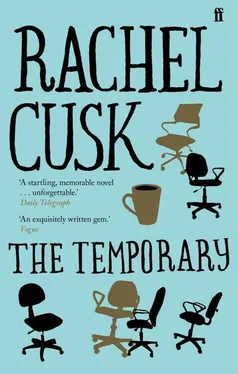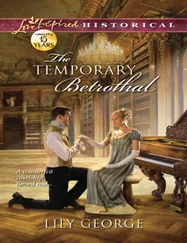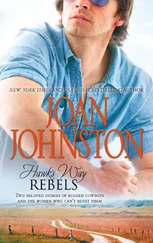He had been lucky, of course, but what astonished him now was to remember how little he had cared about it at the time. He had seen the job advertised in a newspaper and had forlornly applied, his sense of the need to change himself dutiful and fatigued. Swept through each stage of the process, a fateful, almost comical languor had gradually come over him. He had thought of nothing, had formulated no dizzy or concrete hopes, but a strange intuition had tugged him on as if by an invisible thread until he knew that this chance was to be his, that it was being pressed upon him as if by ordination. He had not been surprised when he got the job, and its marvellous result had only dawned on him later, rising up from the darkness of his suppressions and urging him towards belief. What did surprise him was how quickly it had replaced everything that had gone before it. Within days of his succession, the banishment of his past was so complete that he hardly knew himself. He was once more in his bright infancy, the howling spectres of experience purged. Fearfully inspecting his nascent self, he saw that all his cords were cut, and for a while his severance terrified him. Nothing that had made him remained. Once familiar faces became fragments of nightmares, old feelings the faintest of memories for which he could not now find words. He was still wary of his darkness, wondering if one day he might turn a corner or open a door and topple again into its swirling chasm. Occasionally he had felt a frantic, amnesiac urge to summon up purposefully the things which he knew, rather than felt, had once mattered, but as he dug, poised for sorrow, at the withered tentacles of his roots, he could find no life in them. Even there, the fleshy, sturdy stubs of his new existence already held him. The joy of it came to him tentatively, but eventually he accepted its truth. He lived and breathed independently.
He crossed the lock, his swift steps bringing him abruptly up over the blind of its rise behind someone walking ahead of him along the pavement. He had been going too quickly, jogging more or less, and he reined himself back to avert a collision. For a moment the figure was only vaguely in his sights as he adjusted his speed to accommodate it, but then something came to him too late in a terrible flash, a recognition of a present danger, and in the next minute he saw her. Her ambulant back reared up before his eyes, the metallic sheet of hair swaying above a tall and angular form, her purposeful, predatory stride. Panic bolted from him as if at a gunshot. The girl slowed, sensing him behind her. Any second now she would turn around. A tumult of old fears roared like trains through the junction of his thoughts, and he swerved abruptly off the pavement and on to the side of the road, still walking, unable to stop, as if he were caught in the web of a magnetic field. A speeding car passed within inches of him. In the instant before the angry shriek of its horn he closed his eyes and when it came he felt his legs grow numb beneath him. At the periphery of his vision he saw her head snap round and in that moment an invisible path opened up for him across the road. He flung himself towards it with a thudding, thankful heart, his senses wild and alert. Her eyes burned at his back. He reached the other side, panting, and drove on up the pavement with his head clamped straight in a rigid vice of will. He mustn’t look back, he mustn’t. He sensed her moving parallel with him across the road like a shadow. His turning was up ahead, only a minute’s walk away. A second later something broke and he couldn’t stop himself from glancing over his shoulder. She was walking fast, her face trained on him like the barrel of a gun. He was almost there now. His feet pounded the pavement like flagging horses. He heard a shout from behind and when he looked around she was cutting across the road towards him. She glittered like a blade in the melting air. He began to run.
Rachel Cusk was born in 1967 and is the author of seven novels: Saving Agnes, which won the Whitbread First Novel Award, The Temporary, The Country Life, which won the Somerset Maugham Award, The Lucky Ones, which was shortlisted for the Whitbread Novel Award, In the Fold, Arlington Park , which was shortlisted for the Orange Prize, and The Bradshaw Variations . Her non-fiction books are A Life’s Work, The Last Supper and Aftermath . In 2003 she was chosen as one of Granta’s Best of Young Novelists.












